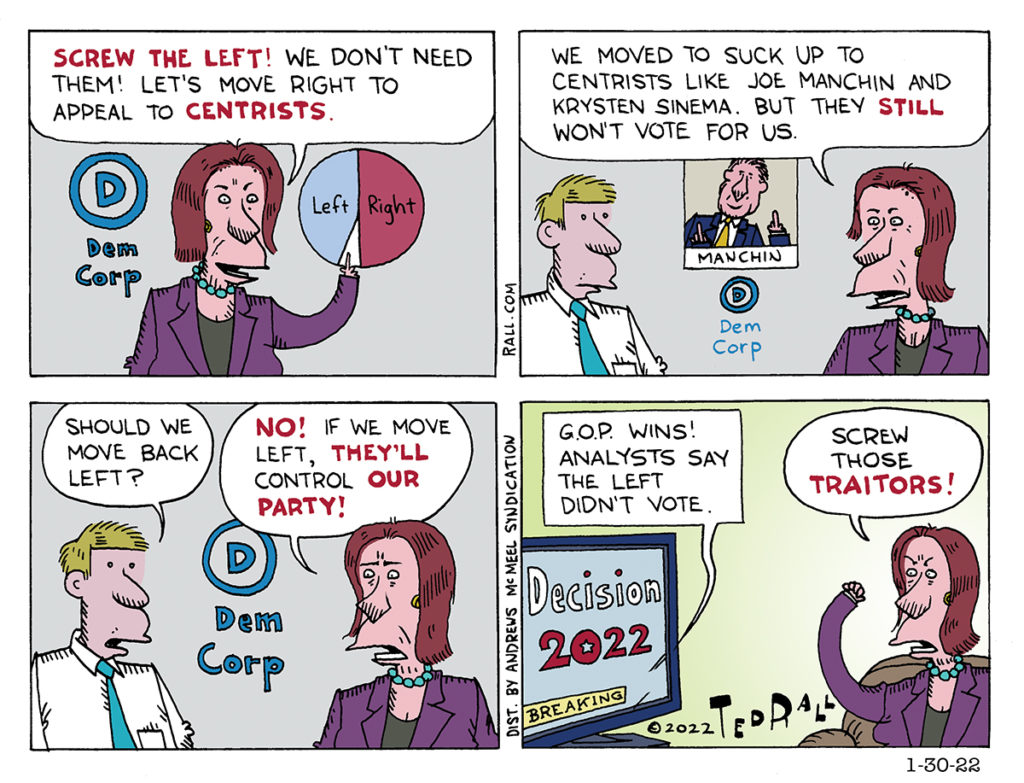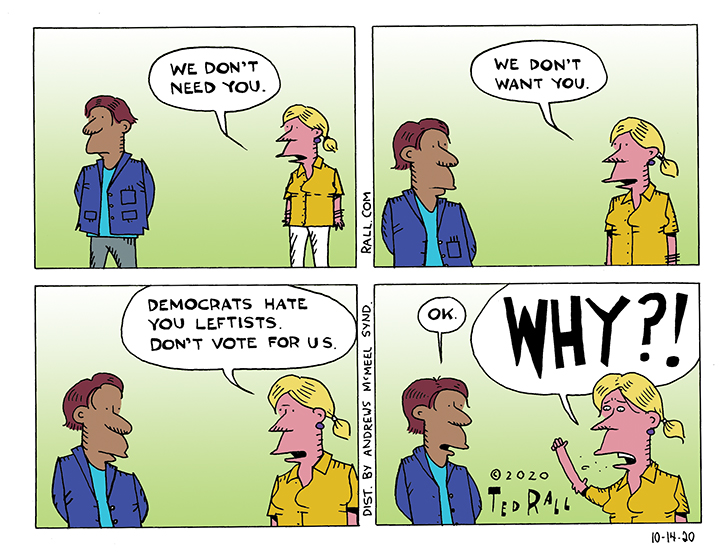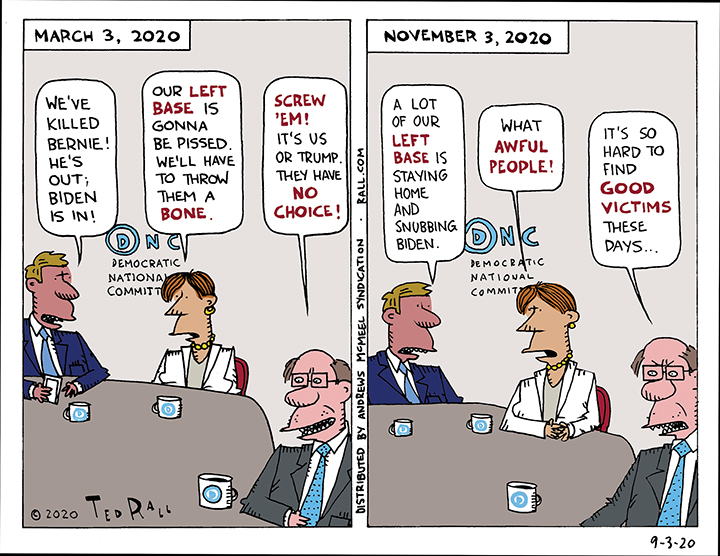What do you do as a voter when your party isn’t that into you? On today’s TMI Show, in which there’s no such thing as Too Much Information, Ted Rall and Scott Stantis (guest hosting for Manila Chan) Progressive and other left-leaning Democrats are once again wrestling with a dilemma they’ve seen before: Kamala Harris has pivoted to the right of her party, eschewing progressive policies, campaigning with far-right Liz Cheney and supporting Israel against Gaza, and Ukraine against Russia.
Should progressives support Harris despite her snubs, hoping she secretly plans to move left of she wins? Should they punish her by voting third party or even for Trump? Or should they abstain from voting?






 Strictly speaking, Nancy Pelosi is right. Led by Alexandria Ocasio-Cortez of New York, the four Congressional freshmen known as the Squad are, by Beltway standards, relatively powerless—just four votes, as the speaker said. They chair no committees and head no broad coalitions that can be counted upon to cast yeas and nays at their command. Yet they are important—and not merely due to their formidable social media following.
Strictly speaking, Nancy Pelosi is right. Led by Alexandria Ocasio-Cortez of New York, the four Congressional freshmen known as the Squad are, by Beltway standards, relatively powerless—just four votes, as the speaker said. They chair no committees and head no broad coalitions that can be counted upon to cast yeas and nays at their command. Yet they are important—and not merely due to their formidable social media following.


